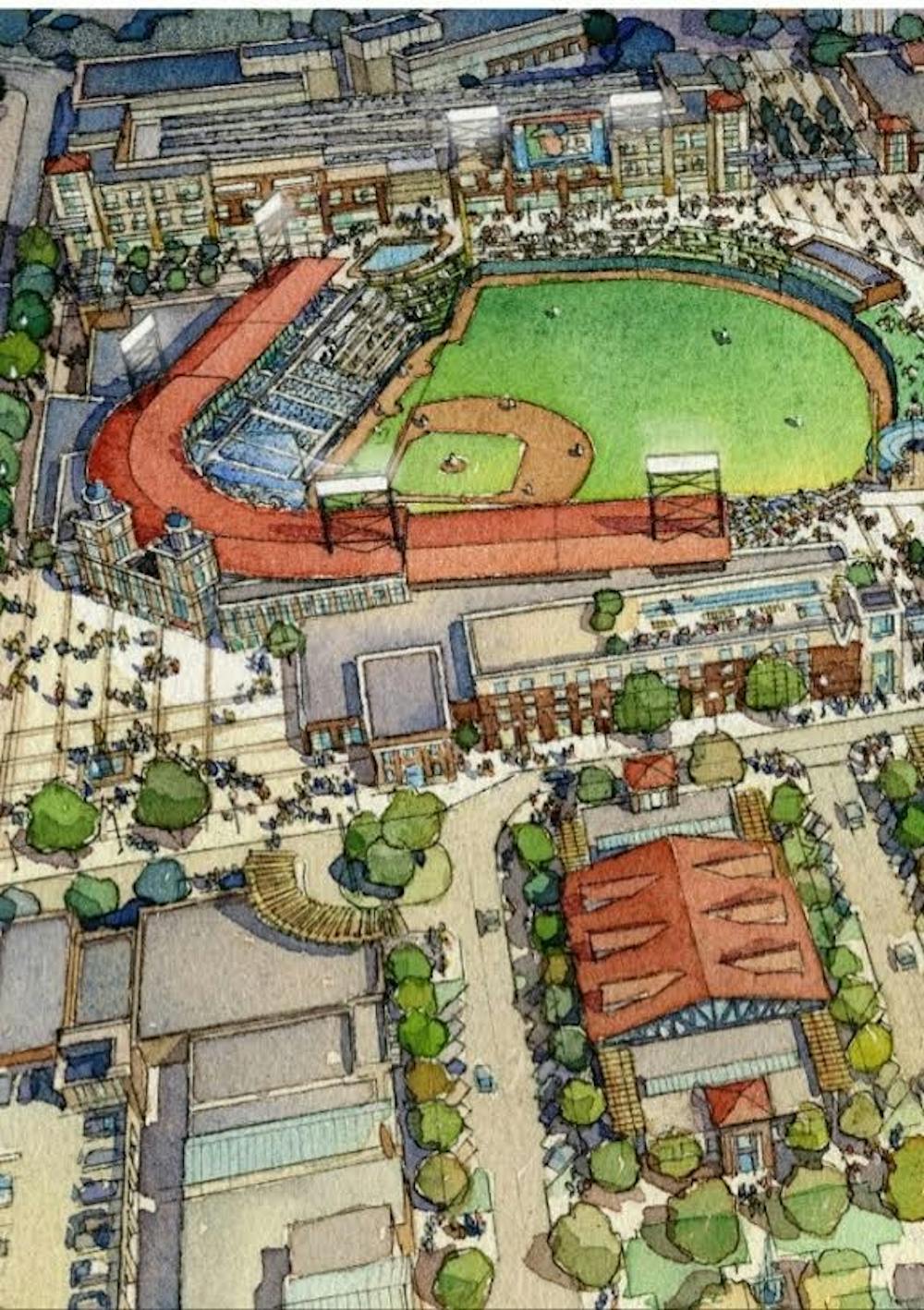Proposal passes on 4-3 vote
Columbia moved one step closer to bringing a minor league baseball team to the city after City Council on Tuesday voted to build a stadium in a planned Bull Street development.
After another lengthy meeting in a packed room, council voted 4-3 to approve an agreement with Atlanta-based Hardball Capital. Council members Leona Plaugh, Tameika Devine and Moe Baddourah voted against it.
Now that the licensing agreement has passed, city staff will move forward with studies to determine how much traffic, noise and lighting will come with the project. A venue development agreement between the city, Hardball Capital and Hughes Development, the developers of the Bull Street campus, will then be brought before council for approval, the next step in building the stadium.
A presentation given by city staff prior to the vote put Columbia’s average total revenue at $377,500 per year. The city will take on $29 million in debt to build the stadium.
Plaugh had numerous concerns regarding the agreement and tried to remedy her concerns with several amendments; they were all voted down.
“The loss is in opportunity cost. It could be our Boeing. It could be our BMW. No, we’ve chosen to invest in a ballpark,” she said. “Why is our vision so limited?”
But Plaugh was in the minority. Columbia Mayor Steve Benjamin led the charge for the stadium, with council members Cameron Runyan, Sam Davis and Brian Newman in tow, after weeks of discussion and debate.
“I was initially against this,” Runyan said. “I don’t invest in things I don’t understand, and I didn’t understand it.”
But Runyan said that after he spent time “peeling back the layers of the onion,” he came to understand the benefits of the agreement and has since decided to support the development wholeheartedly.
Several community members spoke to council Tuesday night to give a brief explanation of why they thought the city should or should not move forward with the project. Common concerns among those speaking were fears that the project was being rushed and a lack of a cost-benefit analysis.
“It is gross negligence not to have cost benefit analysis,” said Elizabeth Marks, a resident of the Robert Mill historic district. “And to quote from a newspaper editor, ‘World-class cities are not built on minor-league ideas.’”
Kit Smith, who served on council for 20 years before retiring in 2011, echoed Marks, saying there was no reason a cost-benefit analysis shouldn’t be conducted before a vote to move forward with development.
“We don’t understand why a cost-benefit analysis is threatening,” Smith said. “We don’t understand why it wouldn’t be a good idea to figure out what the real impact is going to be on the city before you move forward.”
And to the naysayers, Benjamin repeatedly said the process has not been conducted hastily, adding that council is well aware of the costs that will come with construction.
“We even delayed the final month for a month to make sure we weren’t rushing anything,” Benjamin said. “The homework has been done.”
Columbia resident and past mayoral candidate Joe Azar emailed out an anonymous economic analysis of the project Monday night, and Benjamin’s staff issued a rebuttal at the meeting. But when he addressed the council Tuesday, Azar zeroed in on one question in particular.
“What are you going to do if the baseball stadium goes bankrupt?” Azar asked. “What are you going to do?”
For every negative remark the council heard, there was yet another person standing in line to give the council their approval.
“I ask the council people to vote and to vote not just for a baseball stadium or ballpark but to vote for a job. … Vote for the communities,” one said. “Let’s do this thing.”
According to city staff, more than 50 questions and comments were received after the first reading of the licensing agreement.
Most of the feedback fell into six distinct categories: misunderstandings of terminology, unclear language, new suggestions, requests for more information, concerns over the Bull Street development agreement and the fact that the proposal was negotiated prior to the first reading version.

